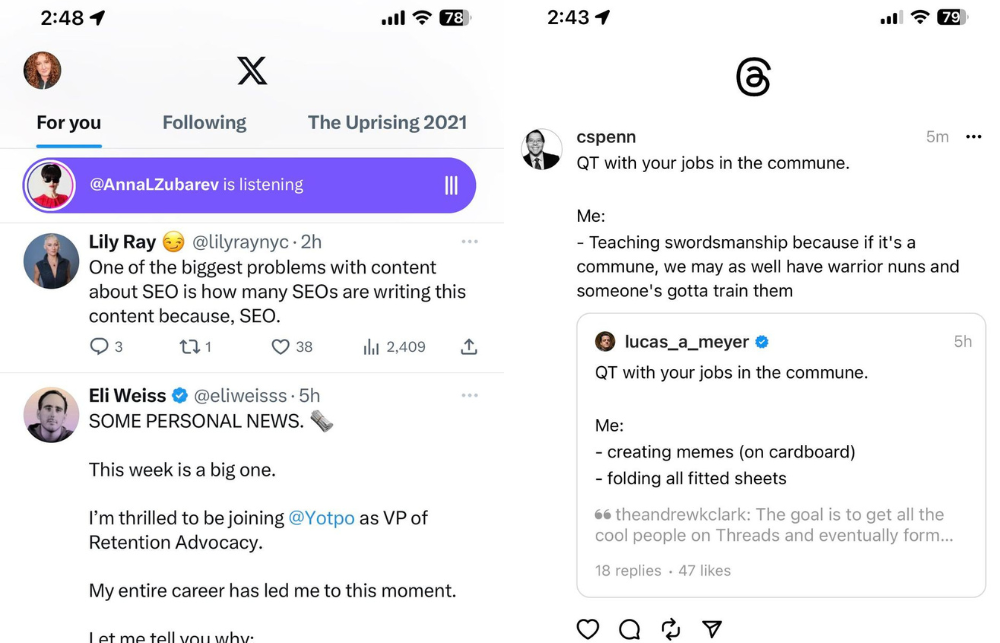People, Process, and Technology: 3 Necessities for Good CI
Every competitive intelligence (CI) program hinges on three main factors. Whether you’re in the early stages of creating a competitive intelligence...
Let's examine some recent cases and learn how to avoid making the same ethical and legal mistakes when conducting competitive intelligence research.

"Corporate Espionage Shocker: Industry Giant Caught in Clandestine Data Heist!"
The details differ from case to case, but there’s one constant in competitive intelligence gone wrong: Malicious people and companies actively engage in capturing, buying, and selling competitive intelligence through unscrupulous means.
It always makes me wonder: Did these companies and individuals forget about ethics, or did they just forego them?
Let’s look at some recent cases of competitive intelligence research that went off the rails. You'll learn where they went wrong and how you and your organization can easily avoid making the same ethical and legal missteps.
The examples in this post revolve around the sneaky transfer of trade secrets. Let's briefly define trade secrets.
Trade secrets aren't just limited to intel like the highly prized Coca-Cola syrup formulation. According to the World Intellectual Property Organization (WIPO), trade secrets can be anything from drawings of computer programs to manufacturing processes to lists of suppliers and clients.
(Raise your hand if you've gotten an email offering you a customer list from one of your competitors! 🙋)
Trade secrets are most often gathered from current or former employees of the targeted competitor. Some employees are disgruntled to the point that they are more than willing to give up private information. Other times, the lure of the company asking for these secrets or what they promise in return is simply an offer employees can't refuse.
Let's examine three cases where employees stole confidential information about their company's self-driving technology and shared it with their future employers. We’ll share the legal outcomes in the next section.
In 2016, Anthony Levandowski scored an executive position with Uber while working for Google's self-driving car project, Waymo (then called Project Chauffeur).
Before he cleared his desk at Google, Levadoski downloaded over 14,000 files containing information about Google’s autonomous vehicle technology, including one internal document containing highly classified information. In court, Levandowski admitted downloading that internal doc to benefit himself and his future employer, Uber.
Tesla has accused several former employees and their post-Tesla employers of stealing their autonomous car trade secrets.
Among them is Guangzhi Cao. Having accepted a job with Chinese electric vehicle manufacturer XPeng, Cao spent a chunk of his time at Telsa sending 300,000 files and directories, including the company's Autopilot source code, to his personal iCloud Account.
In a statement, XPeng said it “was not aware of any alleged misconduct by Mr. Cao." Although the company was not part of the lawsuit, it has been diplomatically called out for having a digital vehicle architecture with a "striking resemblance" to Tesla. Others have more directly called XPeng's products a "Tesla clone."
In November 2017, engineer Weibao Wang accepted a position at a U.S. electric vehicle subsidiary of Baidu but waited four months to tell his employer, Apple.
On the date of his planned departure from the company, Apple discovered that Wang helped himself to large amounts of "sensitive proprietary and confidential information" related to Apple's self-driving vehicle technology. A follow-up investigation revealed that Wang accessed this information while in his new role at the Baidu subsidiary.
In the cases we've talked about so far, the alleged thieves were current employees of the targeted company.
There are many instances, however, where organizations hound competitors' former employees for intelligence.
You might know of a recent example without realizing it. Ask yourself:
What was my initial impression when I logged into Instagram Threads for the first time?

X, formerly known as Twitter, found it eerily similar to its platform. It has threatened to sue Meta for intentionally hiring former X employees to create a lookalike platform.
Gathering private intelligence from a former employee might seem less suspect than taking it from a current employee, but the passing of trade secrets in any context is unethical and illegal.
Unethical competitive intelligence can lead to big problems. This section will examine how stealing trade secrets can get you (and your company) into legal trouble and harm your career.
In the United States, stealing trade secrets is illegal, according to the Economic Espionage Act, the Act's Defend Trade Secrets Act amendment, and the Uniform Trade Secrets Act. Because this conduct violates intellectual property laws, employees and companies often face long legal battles, steep monetary damages, and possible jail time.
Want to know the punishments of the folks mentioned in this article's case studies?
Don't hold your breath for Wang to show up in court. He took a one-way flight to China less than 24 hours before his laptop was confiscated in a post-Apple investigation.
Yes, sharing trade secrets is illegal. But giving up an organization's private information is also unethical and has serious, related consequences.
Being linked to corporate espionage can severely damage your professional standing. And can lead to lifelong regret.
Sure, Joan Jett is fine with her bad reputation. But how about you?
You'll most likely be terminated when the news comes out -- even if your employer was the beneficiary of your intel. Getting another role in the same industry or position will be a colossal challenge when a quick Google or Slack group search can reveal what you've done.
The bad press can also impact the company that acquired the intel.
These companies may lose customer faith, positive brand awareness, and investor trust. News of the company engaging in these shady practices can lead to severed ties with partners and suppliers.
While the immediate buzz of gaining a competitive edge through espionage might seem tempting, it's vastly outweighed by the long-term downsides. Although less adrenaline-pumping, playing fair is always a better choice.
Competitive intelligence is a must for companies to stay ahead in the marketplace. However, as we've learned so far, this intelligence must be gathered and used ethically.
Here are some simple, straightforward strategies to keep your competitive intelligence research methods within ethical and legal boundaries.
As you'll see, it's easier than you think! In fact, most of the time, a person has to go out of their way to fall into unethical competitive intelligence practices.
Tracy Berry, Director of Competitive Intelligence & Communication at Freshworks, sums it up nicely:
If you are considering doing something you're not sure is ethical, ask yourself this: If this action was exposed to the public, would it hurt my company's reputation? A ding against your reputation would likely result in a decline in your company's stock price and could risk exposure to legal proceedings. When in doubt, check in with your legal team.
Creating a company-wide code of ethics is the first step to maintaining your competitive intelligence program remains on the up and up.
Work alongside your legal and compliance teams to detail how intelligence should be gathered, analyzed, and used.
If you'd like some inspiration before you speak with legal and compliance, the Strategic Consortium of Intelligence Professionals has several ethics code resources to get you started. Or read more in this popular blog post on ethical competitive intel.
The key to a successful code of ethics is continually reminding colleagues how important it is to adhere to these legal and ethical guidelines. Consistent enforcement and regular training help instill the code's practices in your company culture.
Transparency is often a section in a code of ethics, but it merits its own section here.
Transparency is key in ethical intelligence gathering. This means openly identifying yourself when engaging with competitors, industry sources, or the marketplace.
Whether you're at a trade show booth, signing up for a competitor Webinar, or conducting competitive customer reviews, be forthcoming in stating who you work for and what your role is. Sure, being honest about your identity might make those you're interacting with less likely to give you intel, but you can rest assured that everything you get is obtained legally.
Insist that all information is gathered through legitimate means such as public databases, industry reports, online platforms, and transparent market research.
There are time-saving tools that automate and systematize your competitive intelligence research. If you plan to use a tool to collect information, make sure the software curates competitive intel with the same mindset.
Kompyte automatically tracks your competitors’ updates across hundreds of publically accessible sources, including:
The tool's embedded AI then hones in on the most relevant data points for your organization's competitive strategy.
.Trends is another tool that uses above-board practices and clickstream data to provide data on what channels your competitors use and what traffic generation strategies are working for those organizations.
You and your business must treat competitive intelligence with the highest degree of integrity. By focusing on transparency, legality, and a strong ethical code, you can still gain insights -- but without the downside of compromising your reputation or facing severe legal repercussions. With the vast amount of publicly available data, it's easier than ever to hold your head high as a competitive intelligence professional.
Every competitive intelligence (CI) program hinges on three main factors. Whether you’re in the early stages of creating a competitive intelligence...
Learn how you can improve your social media reach & engagement with competitive intelligence. 8 minute read
Is gathering competitive intelligence legal? It depends on a lot of different factors. Read this article to understand the legality of intel...
Be the first to know about new B2B SaaS Marketing insights to build or refine your marketing function with the tools and knowledge of today’s industry.